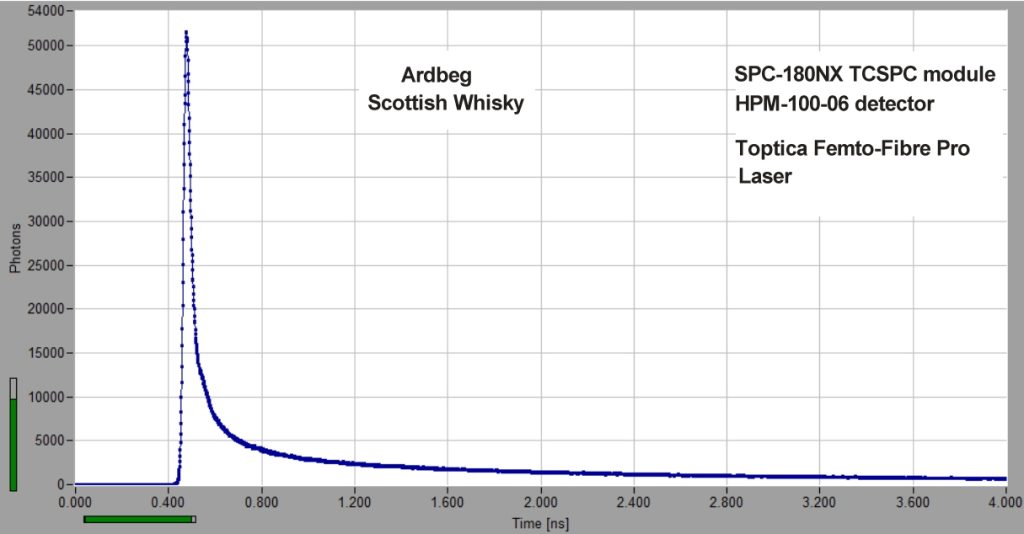Using TCSPC with ultra-fast hybrid detectors we found extremely fast fluorescence-decay components in Scottish whisky. To record the data we used our DCS-120 MP multiphoton FLIM system. Due to negligible excitation pulse width of the femtosecond laser, small effective sample volume, and absence of transit-time effects in the sample the system reaches a temporal IRF width of about 25 ps. Data obtained from different brands of whisky showed fast decay components down to less than 10 ps decay time and more than 90% amplitude. Decay times and amplitudes were clearly different for different whisky samples. Whether the values are characteristic of the brand or of the ageing we are not able to tell yet. More data are required to find that out. The most important result of this investigation is probably the confirmation that ultra-fast fluorescence-decay processes are by far more frequent than commonly believed. Ultra-fast decay times should therefore no longer be considered a peculiarity but a real source of scientific information. For more information please see Application Note.
Back to News


